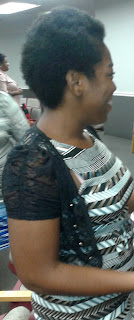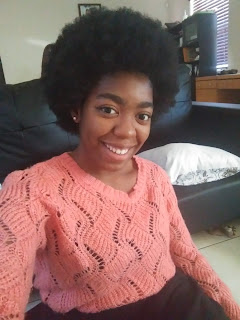Products are made to make life easier while keeping your hair, skin, and beard soft, healthy, and glowing naturally.
All-in-One Hair, Skin & Beard Elixir
Our little miracles do it all. They moisturize, strengthen, and protect your hair, skin, and beard — and it lasts for more than three days!
Perfect for natural hair, soft skin, and even men’s beards.
Spycella represents the following characteristics:
-
Saves Time: One product, so many uses — your morning routine just got simpler.
-
Healthy & Strong: Helps hair and beards stay soft, shiny, and strong.
-
Moisture Love: Hydrates hair, skin, and beards for that healthy, happy feeling.
-
For Everyone: Works on all hair types, skin tones, and beard styles.
A little goes a long way. Feel good, look good, and spend less time fussing.
Our Owner's Story
I Thought “Straight Hair” Was Better
My name is Francesca, but most people call me Sarah — my mom never used my legal name growing up. It’s a long story, but we’ll save that for another time.
I grew up in Haiti, where 95% of the population is Black. In school, we were taught to embrace our natural features, including our hair. A famous poem, Choukoun, inspired many girls, including me, to love our Afrocentric roots. But soon, harmful stereotypes about natural hair began to spread. Most women came to believe that “straight hair” was the standard of beauty — and I was one of them.
When I turned 12, perms became popular in my community. Excited, I sat in front of my mom as she parted my hair in sections to apply the chemical cream. But the burns on my scalp and ears made the experience painful, and the resulting scars made me question whether it was worth it. Yet, blinded by the desire to conform, both my mom and I continued.
Eventually, my hair suffered significant damage. My mom had no choice but to cut it, leaving some roots that reverted to their natural state alongside damaged strands. For months, I looked like a patchwork dalmatian, and the teasing at school made me dread going there.
My mom cared deeply about my hair. She bought bamboo-based products, including Dr. Miracle’s “Sulfur 8,” and slowly my hair grew back. But it remained dry, and I was exhausted from the constant use of flat irons. The heat damage caused shedding, and I knew it was time to stop perming completely.
Despite wanting to stop, caring for natural hair seemed impossible at the time. It was more work for my mom to keep it healthy, and I was embarrassed by the unkind comments from others. People called my hair a “mattress,” “carpet,” or “dish scrub.” I tried resisting during my transition, but affordable quality products were scarce in Haiti, so I returned to perming until I came to the U.S.
On the left, that was me with permed hair. Not only it was damaged and thin, but it looked dry and unhealthy. And still, people liked it. I never understood why.The Turning Point
Why was straight hair fetishized? Where did these standards originate? As I learned about the subtle biases against our Afro features, I knew I wanted my natural hair back.
On July 15, 2017, my best friend and I did the big chop together. Cutting off the permed strands felt more powerful than freedom. It was like breaking the shackles of societal misconceptions.
People advised me to wear earrings to appear feminine and to perm my hair again because it was “better.” I resisted, and I have never regretted that decision.
Five Months After
Three months into my natural hair journey, I saw growth. My curls bounced when wet and shrank as they dried. The texture was spongy, lively, and full of life. I finally understood that natural hair can grow beautifully and healthily.
Six Months to One Year Later
Now, I am convinced: Natural hair is not only beautiful but unique. It carries our history, our resilience, and our stories. It reminds us of the ancestors who wore these styles proudly. I will not stay silent. I proudly say, “My hair is beautiful.”
I embrace the hairstyles of our Afro ancestors and encourage all my coily comrades to do the same. We are not ourselves without our nappy hair. Accepting our natural texture is a milestone in history, and together, we can keep it thriving, not erase it.

















